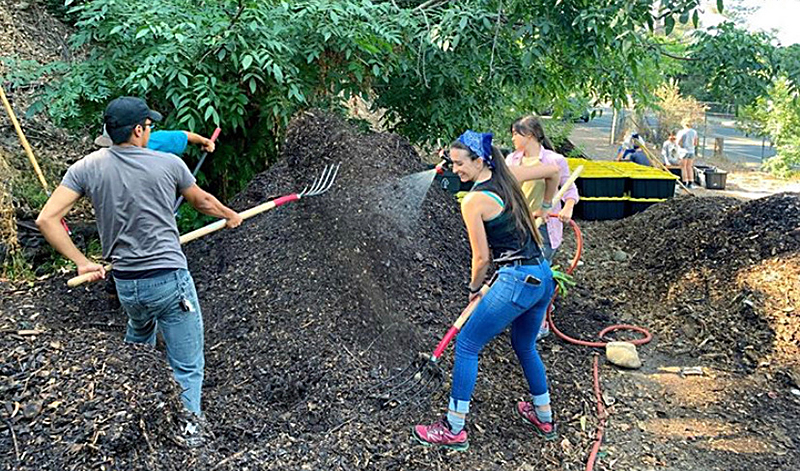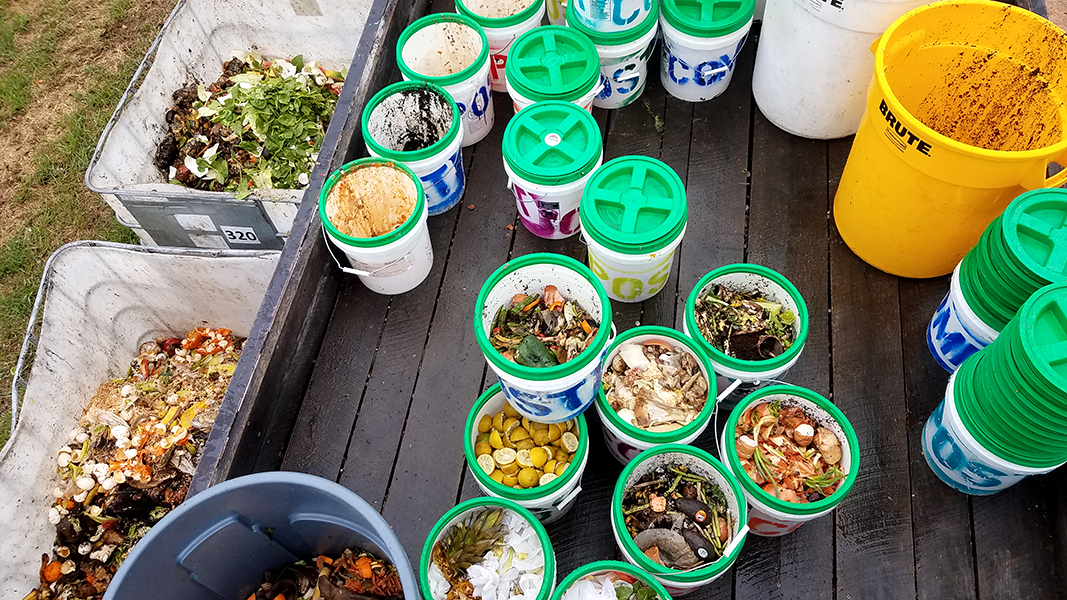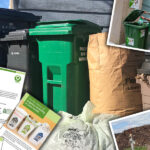Top: Rising Sand Organics, a community composting enterprise in Stevens Point, Wisconsin, collects food scraps from households and businesses. Photo courtesy of Rising Sand Organics
The U.S. Department of Agriculture (USDA) announced the availability of up to $2 million for local governments to host Community Compost and Food Waste Reduction (CCFWR) pilot projects for fiscal year 2021. The cooperative agreements support projects that develop and test strategies for planning and implementing municipal composting and food waste reduction plans, which are part of USDA’s broader efforts to support urban agriculture. USDA’s Office of Urban Agriculture and Innovative Production will accept applications on Grants.gov until 11:59 p.m. Eastern on July 16, 2021. Projects should span two years with a start date of September 25, 2021 and completion date of September 25, 2023. A prerecorded webinar provides an overview of the purpose of the cooperative agreements, project types, eligibility and basic requirements for submitting an application.

LA Compost in Los Angeles operates community composting hubs. Photo courtesy of LA Compost
“Finding ways to turn food waste into nutrient rich compost is a win-win for farmers, communities and the environment,” Deputy Under Secretary for Farm Production and Conservation Gloria Montaño Greene said when announcing the funding. “The level of enthusiasm and creativity communities are putting towards this kind of problem solving is inspiring, and USDA is proud to support it.”
The cooperative agreements support projects led by local governments that: Generate compost; Increase access to compost for agricultural producers; Reduce reliance on and limit the use of fertilizer; Improve soil quality; Encourage waste management and permaculture business development; Increase rainwater absorption; Reduce municipal food waste; and Divert food waste from landfills. Priority will be given to projects that anticipate or demonstrate economic benefits, incorporate plans to make compost easily accessible to farmers, including community gardeners, integrate other food waste strategies including food recovery, and collaborate with multiple partners.
This is the second year USDA’s Urban Agriculture Office has offered this funding opportunity. An example of a previously selected project is the City of Prescott, Arizona, which received funding to collaborate with the farmers’ market, volunteers, restaurants, Yavapai County Cooperative Extension and Prescott College to design, build and implement the Prescott Community Compost Program. The program educates the community about composting, reduces food waste by collecting and composting restaurant food scraps and provides high-quality compost to gardeners and farmers in Central Yavapai County, creating approximately 28 tons of compost over the two-year program.










